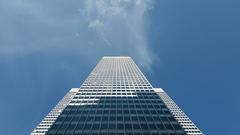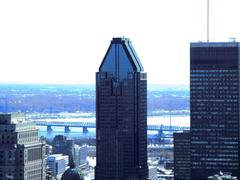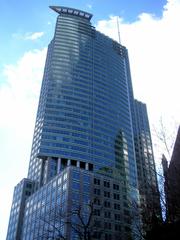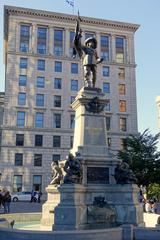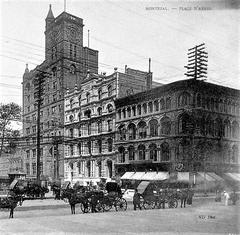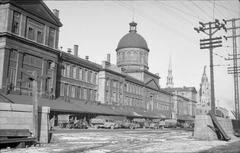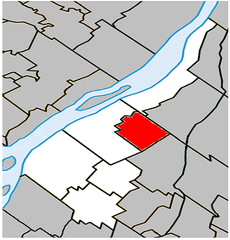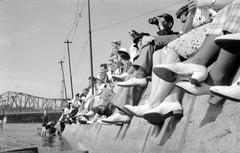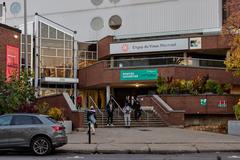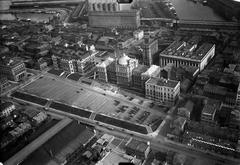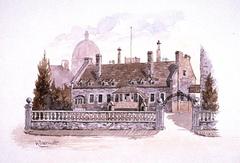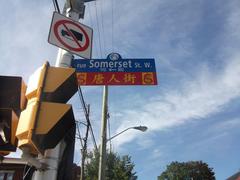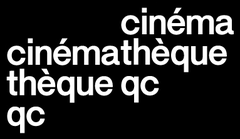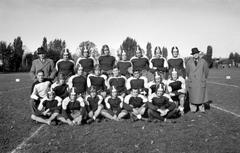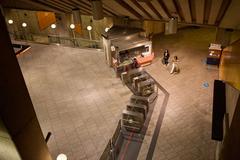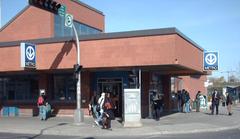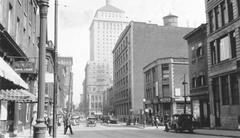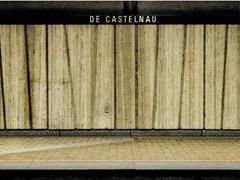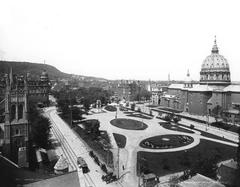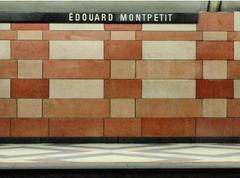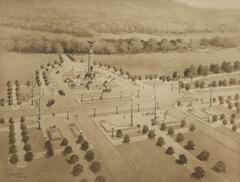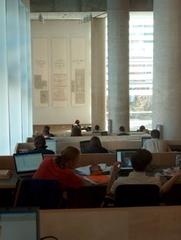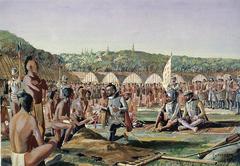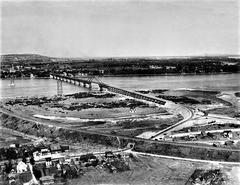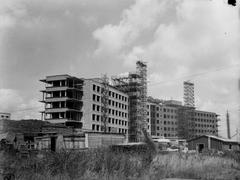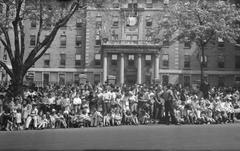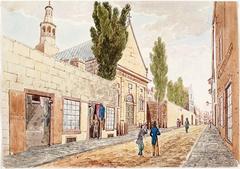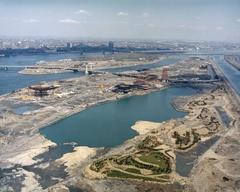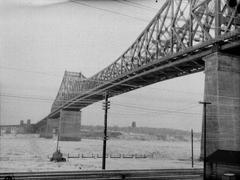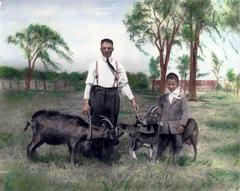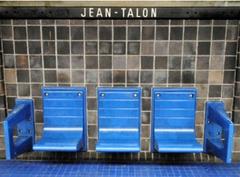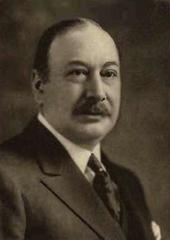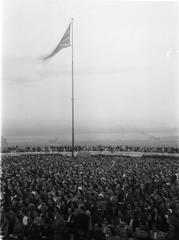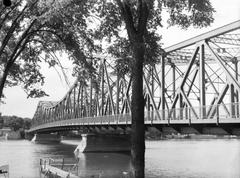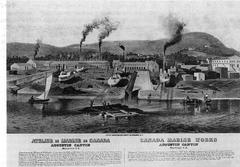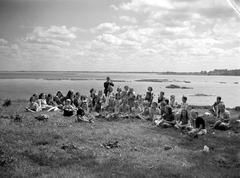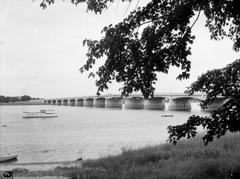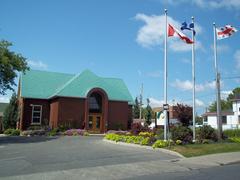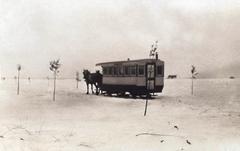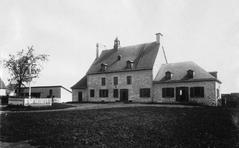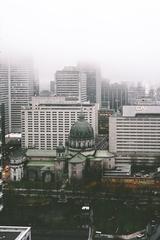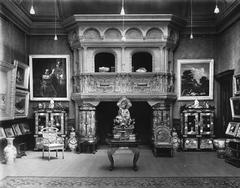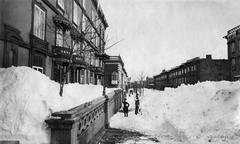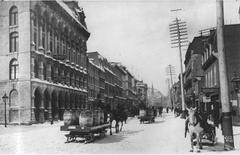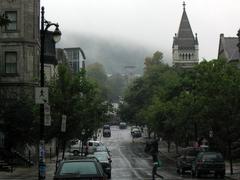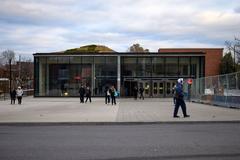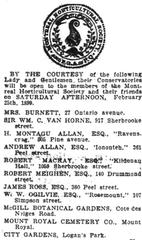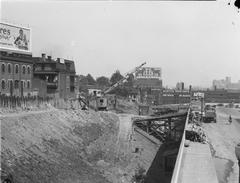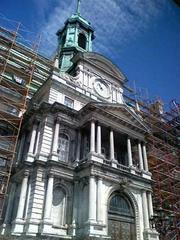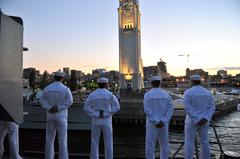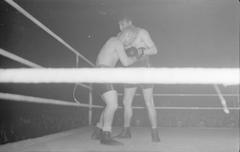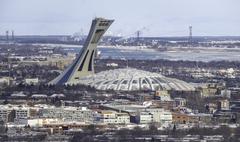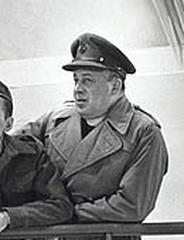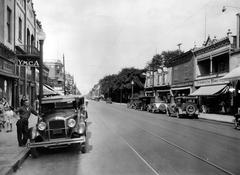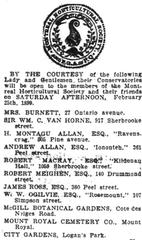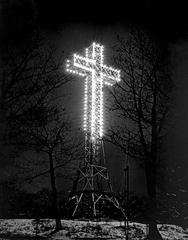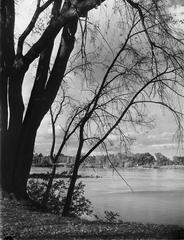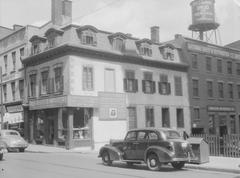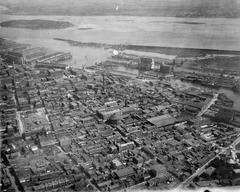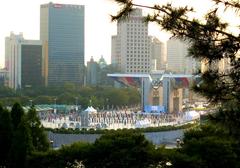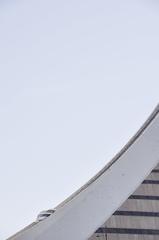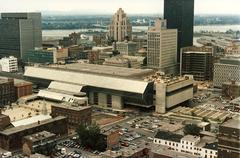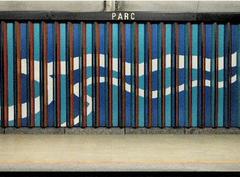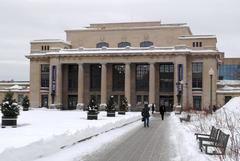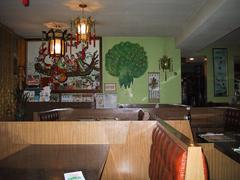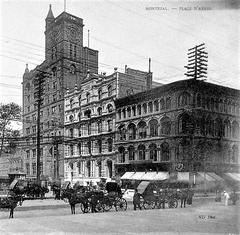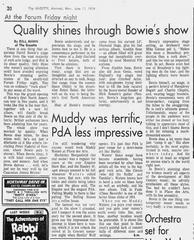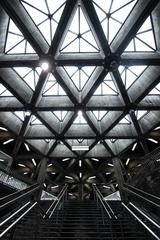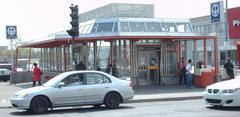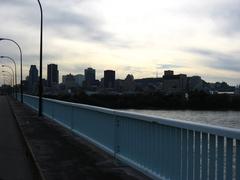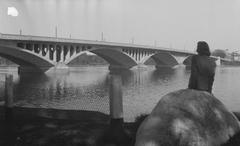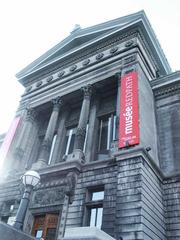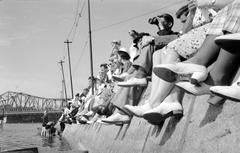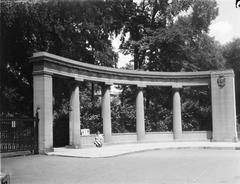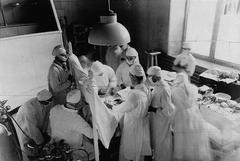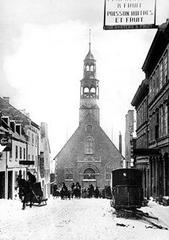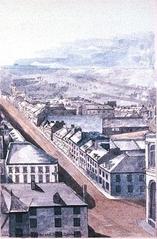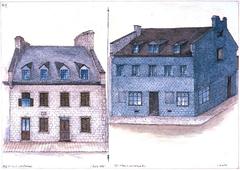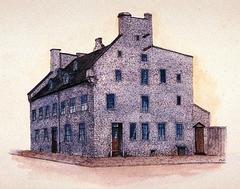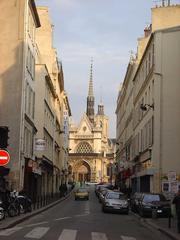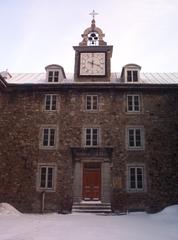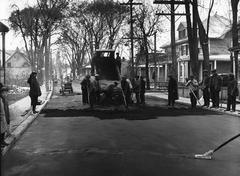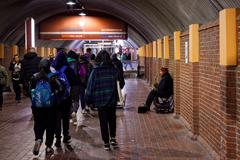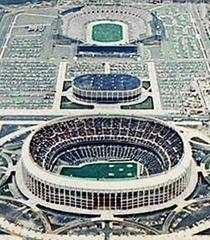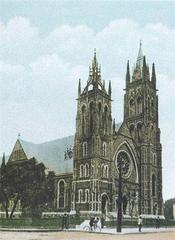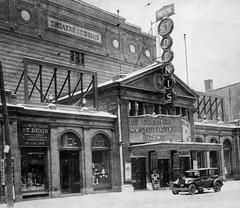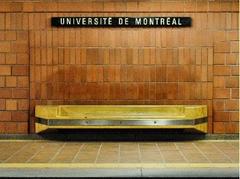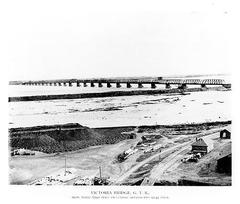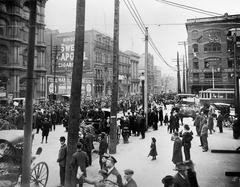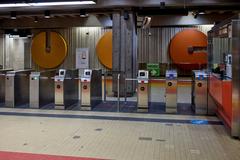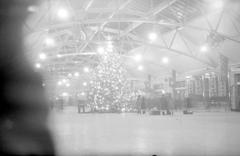Montreal Chinese Hospital Visiting Hours, Tickets, and Historical Sites Guide
Date: 04/07/2025
Introduction
Nestled in the heart of Montreal’s Chinatown, the Montreal Chinese Hospital (MCH) stands as a testament to more than a century of resilience, cultural preservation, and community solidarity among Chinese Canadians in Quebec. Originally founded during the 1918 influenza pandemic to address healthcare disparities facing Chinese immigrants, the MCH has evolved into a modern long-term care facility, serving both a medical and cultural mission. Today, it remains the only Chinese hospital in Canada, symbolizing the rich heritage and ongoing contributions of Montreal’s Chinese community. This comprehensive guide details everything you need to know about visiting the Montreal Chinese Hospital, including its historical significance, visiting hours, policies, accessibility, and nearby attractions (Montreal Chinese Hospital Foundation, Ville de Montréal, Wikipedia).
Table of Contents
- Historical Overview
- Visiting the Montreal Chinese Hospital
- Cultural and Architectural Highlights
- Nearby Attractions
- Frequently Asked Questions (FAQ)
- Conclusion and Visitor Engagement
- References and Further Reading
Historical Overview
Beginnings: The 1918 Influenza Pandemic
The origins of the Montreal Chinese Hospital trace back to the 1918 influenza pandemic. Chinese immigrants in Montreal, facing exclusion from mainstream hospitals due to racial discrimination and overcrowding, were left with limited access to care (Ville de Montréal). In response, the Sisters of the Immaculate Conception, under Mother Mary of the Holy Spirit (Delia Tétreault), established a 7-bed emergency shelter at 66 Clark Street. This shelter provided crucial care to 55 patients during the pandemic, offering a vital lifeline to the marginalized Chinese community (Montreal Chinese Hospital Foundation).
Establishment and Growth (1920–1965)
After the pandemic, the need for a permanent medical institution was evident. The Chinese community, with support from the Sisters and public donors, purchased a former synagogue at 112 De la Gauchetière Street West in 1919, officially opening the first permanent hospital in 1920 (Wikipedia). The hospital was fully funded by the Chinese diaspora, with Dr. Louis E. Fortier and Dr. William Delorme leading its early medical efforts. It became a haven for elderly Chinese men, many of whom had come to Canada for railway work and were unable to reunite with families due to exclusionary laws (Ville de Montréal).
By the 1960s, the aging facility could no longer meet demand. Thanks to a remarkable community fundraising campaign, the hospital relocated in 1965 to a new 65-bed facility at 7500 Saint-Denis Street (Montreal Chinese Hospital Foundation).
Transition and Modernization (1969–1999)
In 1969, the hospital transitioned to long-term elder care, reflecting the community’s aging demographic. It became a public institution in 1971, ensuring government funding while maintaining its cultural mission (Montreal Chinese Hospital Foundation). By the mid-1980s, recognizing the need to return to Chinatown, the hospital community led another fundraising drive. In April 1999, the MCH opened its current, purpose-built home at 189 Viger Avenue East, featuring 128 beds and distinctive Chinese architectural elements, including a Confucius statue and garden gate (Ville de Montréal).
The Hospital’s Role Today
Today, the MCH is a long-term care facility (CHSLD) offering culturally sensitive elder care, outpatient clinics, and community activities. The Montreal Chinese Hospital Foundation continues to support projects that preserve the hospital’s unique character and heritage (Montreal Chinese Hospital Foundation).
Visiting the Montreal Chinese Hospital
Visiting Hours and Admission
- Visiting Hours: Daily from 10:00 AM to 8:00 PM. Always confirm current hours before visiting, as policies may change during public health emergencies or special circumstances.
- Admission and Tickets: The hospital is not a tourist attraction and does not require tickets or admission fees. Visits are generally limited to family and friends of residents, but the hospital may host public cultural events or tours during special occasions (Montreal Chinese Hospital Foundation).
- Entry Guidelines: All visitors must check in at reception, comply with infection control measures (mask-wearing, hand hygiene), and respect patient privacy.
Accessibility
- Fully wheelchair accessible, with ramps, elevators, and accessible restrooms.
- Conveniently reached via public transit: Place-d’Armes and Champ-de-Mars metro stations (Orange Line) are within walking distance; several STM bus routes serve the area (Timeout Montreal).
- Limited street parking and public lots are available nearby.
Guided Tours and Special Events
- Guided Tours: Not regularly offered to the public due to healthcare operations. However, group visits or educational tours can be arranged in advance by contacting the hospital or its foundation.
- Special Events: The hospital hosts community celebrations such as Lunar New Year and Mid-Autumn Festival, which may include performances, exhibitions, and open houses (One World One Humanity). Check the foundation’s website or local event calendars for announcements.
Visitor Etiquette
- Maintain Quiet: Speak softly and avoid disruptive behavior.
- No Photography: Do not take photographs or videos inside without explicit permission.
- Respect Privacy: Avoid entering restricted areas and do not disturb patients or staff.
- Dress Modestly: Modest, respectful attire is recommended.
- Cultural Sensitivity: Greetings in Mandarin or Cantonese are appreciated, but a smile and polite nod are universally welcomed.
Cultural and Architectural Highlights
- Confucius Statue: Standing at the hospital entrance, this statue symbolizes the institution’s dedication to Chinese heritage, wisdom, and respect for elders.
- Garden Gate (Paifang): The hospital’s entrance features a traditional garden gate, echoing the ornate paifang gates of Chinatown and providing a picturesque spot for photos.
- Heritage Displays: Commemorative plaques and portraits in public areas honor the hospital’s founders and community leaders, including Délia Tétreault.
- Chapel: The inter-denominational chapel displays artifacts reflecting the hospital’s religious and cultural history.
Nearby Attractions
Situated in the heart of Chinatown, the hospital is surrounded by vibrant cultural and culinary destinations:
- Chinatown’s Paifang Gates: Iconic entrances to the district.
- Sun Yat-Sen Park: A relaxing green space hosting cultural events.
- Chinese Community and Cultural Center: Offers language classes, workshops, and exhibitions.
- Local restaurants, bakeries, and specialty shops: Experience authentic Chinese and Southeast Asian cuisine (Montreal’s Chinatown).
- Old Montreal and Quartier des Spectacles: Both are within a 15-minute walk.
Frequently Asked Questions (FAQ)
Q: What are the visiting hours?
A: 10:00 AM to 8:00 PM daily, but always confirm before your visit.
Q: Are tickets required?
A: No, entry is free and does not require tickets.
Q: Can tourists visit the hospital?
A: The hospital is primarily a healthcare facility. Public tours are rare and typically arranged for groups or during special events. Contact administration for details.
Q: Is the hospital wheelchair accessible?
A: Yes, all public areas are accessible.
Q: Are guided tours available?
A: Only by prior arrangement or during special events.
Q: How can I get there?
A: By metro (Place-d’Armes or Champ-de-Mars stations), bus, or car (limited parking available).
Q: Is photography allowed?
A: Not inside the hospital without permission.
Q: How can I support the hospital?
A: Donations to the Montreal Chinese Hospital Foundation are welcome and support both patient care and cultural programming (Montreal Chinese Hospital Foundation).
Conclusion and Visitor Engagement
The Montreal Chinese Hospital is more than a healthcare institution—it is a living symbol of cultural pride, community resilience, and the enduring legacy of Chinese Canadians in Montreal. While primarily serving elderly residents, the hospital occasionally opens its doors for community celebrations and educational events, inviting visitors to appreciate its unique history and role. To make the most of your visit, respect hospital policies, plan ahead, and explore the surrounding Chinatown district for a full cultural experience.
Stay informed about special events and tours by checking the Montreal Chinese Hospital Foundation’s official website and community bulletins. For more cultural guides and insider tips on Montreal’s heritage sites, download the Audiala app and explore related articles.
References and Further Reading
- Montreal Chinese Hospital Foundation - Our History
- Ville de Montréal: The Chinese Hospital in Montreal
- Montreal Chinese Hospital - Wikipedia
- Timeout Montreal - Chinatown Attractions
- One World One Humanity - Celebrating Jimmy Chan’s Contributions
- Montreal’s Chinatown
Images Suggested:
- Montreal Chinese Hospital exterior with Confucius statue (alt: “Montreal Chinese Hospital exterior and Confucius statue”)
- Paifang gates of Chinatown (alt: “Traditional paifang gates marking Montreal Chinatown entrance”)
- Map showing Montreal Chinese Hospital in the Chinatown district
Internal Links:
